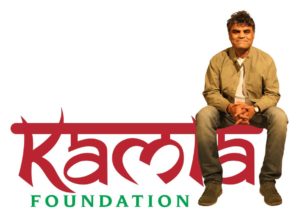Poverty – The Challenge for India
 The concept of poverty is relative and subjective. Many attempts have been made to define poverty but all of them are conditioned by the vision of a minimum standard of living acceptable in society.
The concept of poverty is relative and subjective. Many attempts have been made to define poverty but all of them are conditioned by the vision of a minimum standard of living acceptable in society.
The existence of mass poverty is incompatible with modern-day India. That is a vision of an advanced, prosperous democratic and just society. Despite numerous Government initiatives over many decades, poverty has expanded tenfold, creating glaring inequalities of wealth and income.
Even Mahatma Gandhi’s hopes have not been fulfilled of creating a fair and tolerant society. Since his passing, only a few islands of prosperity have been created in an ocean of poverty. In Indian cities, you are able to see skyscrapers and palatial buildings, side by side with the ramshackle houses and huts of the poor. Here you can see a direct correlation between those getting poorer and those getting richer.
In India, the definition of ‘the poverty line’ emphasises a minimum level of living, rather than a reasonable level of living. This attitude is borne out of a realisation that it would not be possible to provide millions of people with even the minimum basic needs for some decades; therefore, to talk about a reasonable level of living may appear to be wishful thinking at this moment in time. Thus political considerations enter the definitions of poverty because programs of alleviation may become prohibitive as the vision of a good life widens.
Furthermore, the deep-rooted traditional poverty of rural India poses a colossal problem which cannot be solved by any magic wand. The stimulation of production and distribution of essential supplies has brought much relief to the poorest regions. In particular supporting agricultural labourers has been fundamental to this. Through the distribution of surplus land, liquidation of indebtedness, provision of housing sites, ending the barbarous practice of bonded labour, supply of books and essential educational support to poor students and providing more employment opportunities through development, has helped millions realign their paths out of extreme poverty.
Through our work, we are trying to better understand how some of the most deprived endure extreme poverty and the routes which offers the best hope of uplifting them from their dire predicament. We find that each person has different starting points, based on the circumstances of their life stories. ……
………..and so the battle continues.
